The Computer Literacy Project 1980 - 1989
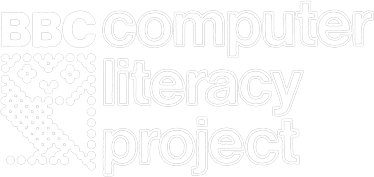
The 1980s saw a revolution in computing. At the beginning, low cost ‘micros’ were a novelty; by the end they were almost everywhere.
In 1978/1979 the UK seemed woefully unprepared for the ‘new technology’. In business and industry, the silicon chip was changing ways of working, threatening many jobs and making the UK uncompetitive.
By 1980 both government and the BBC saw the need for a public awareness and education campaign. The result was the BBC’s ambitious Computer Literacy Project. It coincided with the explosion of personal computing. The project chronicled an important period in the history of computing as well as contributing to it.
How The Project Came About
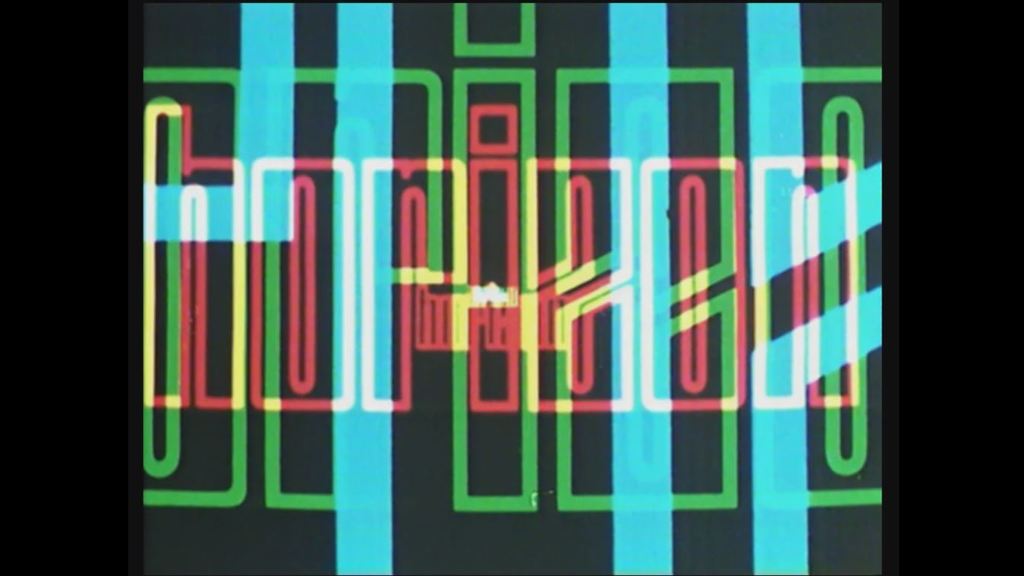
Something must be done
‘Now the Chips are Down’ – a Horizon Special (1978) - drew attention to government inactivity about what was being called ‘The Microelectronics Revolution’. This influential TV programme helped to galvanise a debate about what should be done to address the UK’s lack of awareness and competitiveness. It drew attention to the profound social impact predicted for the new technology – especially threatening semi-skilled jobs. Rumour has it that it was shown to the cabinet.
BBC Education was a part of the general broadcasting service in the 1980s. Education had its own Controller and the BBC had advisory councils helping it decide on priorities. The Computer Literacy Project was conceived within the Continuing Education Television department led by Sheila Innes.
Funded by the Manpower Services Commission – a government team tasked with advising on employment policy - BBC Education undertook international research leading to the ‘Microelectronics’ report. This was a broad look at what technologists, industrialists, unionists and educationists were saying, and it was sent to all MPs, helping shape the BBC’s thinking about a public awareness and education campaign, with a ‘hands-on’ philosophy: people should learn how to use and control computers not feel dominated by them.
Birth of The Project
The Computer Literacy Project, a bold, multimedia initiative was planned between 1979 and 1982 and launched in March 1982. It continued in various forms until 1989.
Around the beginning of 1980 within BBC Education discussions were taking place about what the BBC should do. The Education department generally produced programmes supported by books and other learning materials, and was strongly supported within the education world by courses.
Something highly structured and practical was called for if people were to be encouraged to learn about computing by getting their hands on the newly arrived machines.
The project drew on the experience of the Adult Literacy Project a few years earlier which had provided reading courses for 2 million people across the UK, stimulated by the TV series On the Move, featuring Bob Hoskins.
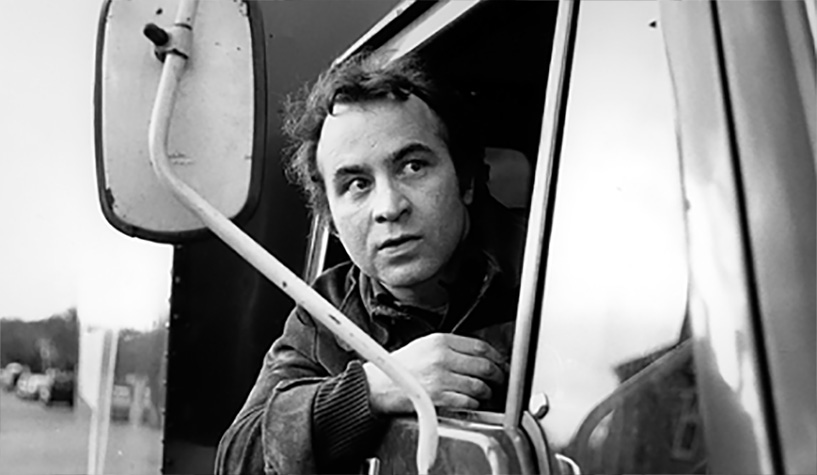
The Early TV Programmes
While planning for a major project took place, several TV series including Silicon Factor and Managing the Micro explored the issues facing society and business.
The Silicon Factor, fronted by veteran current affairs reporter Bernard Falk, won an award at the New York Film Festival. Managing the Micro was presented by Brian Redhead of the Today programme.
Although aimed at the general audience, the project aimed to use the BBC’s wide-ranging network of education officers, and encouraged schools, colleges and adult education centres to take part. Besides TV and radio, the project required computer hardware (eventually in the form of the BBC Microcomputer system), as well course materials (produced by the National Extension College) and a range of sources of advice and help for people wanting to learn about computing.
An internal BBC report Towards Computer Literacy written by Executive Producer John Radcliffe at the time describes the complex thinking and planning involved.
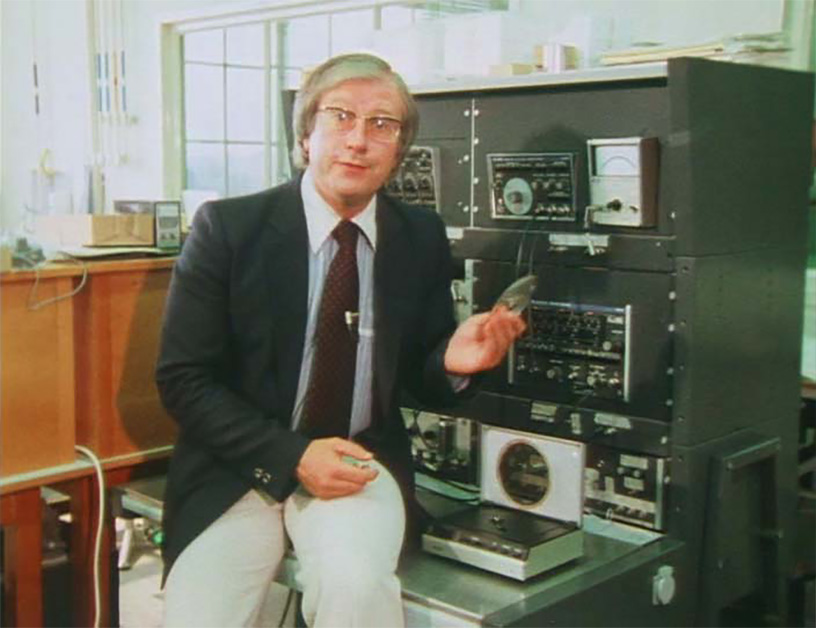
Government support
Meanwhile the incoming Conservative government (1979) under Margaret Thatcher looked for ‘quick wins’.
Kenneth Baker – then Minister for Information Technology – tells how he helped kick-start several initiatives in a recent interview with Peter Hennesey. The BBC had earlier been approached and asked how it could help increase public awareness. The Department of Trade and Industry (DTI) supported the embryonic project, working alongside BBC Engineering, in search for a company to produce an associated computer – which eventually became the BBC Micro.
Launch of the BBC Micro
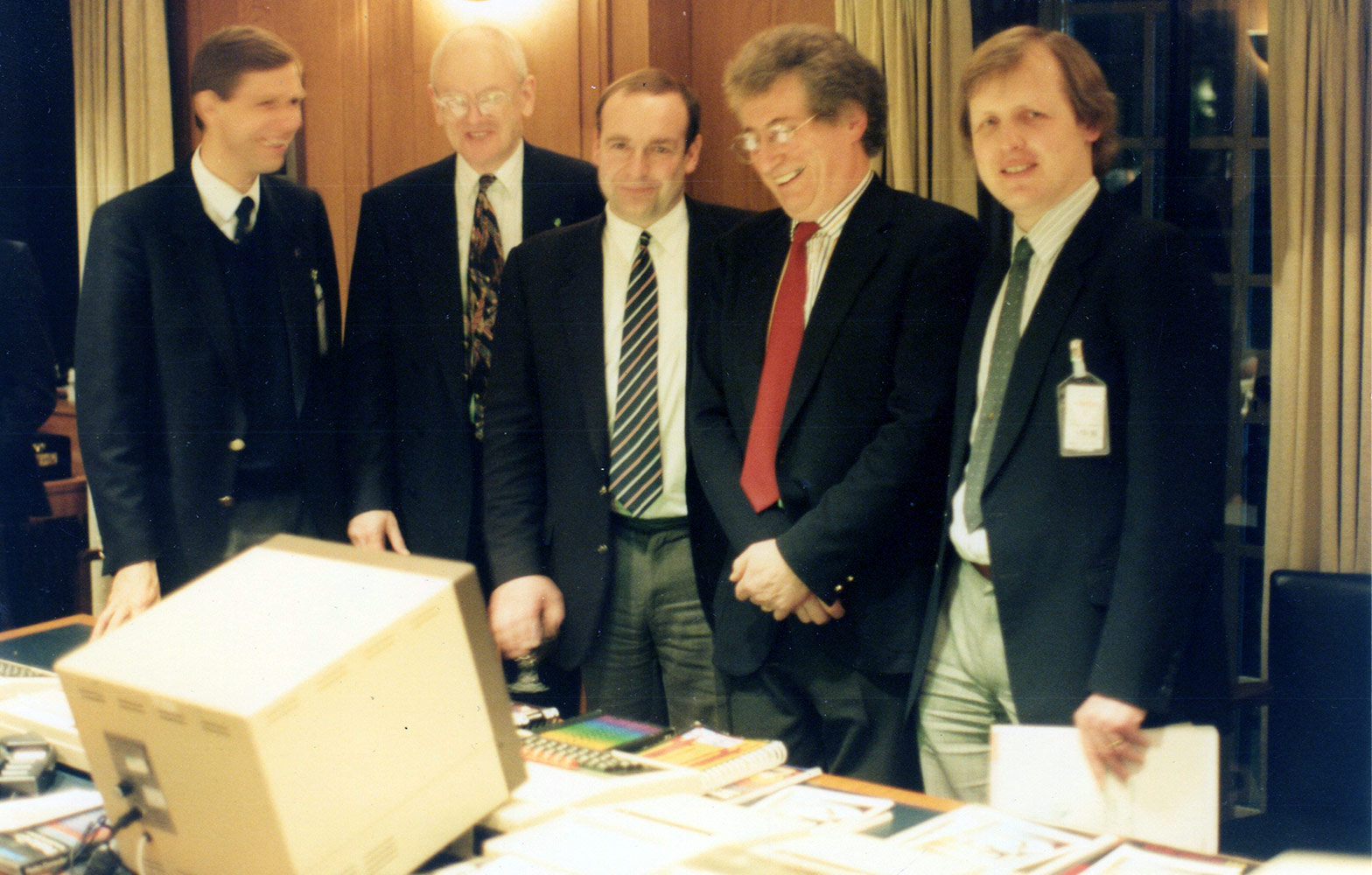
When the BBC launched the project a group of government DTI ministers were given their own introduction to the BBC Micro, which became the most popular computer in its Computers for Schools programme. Kenneth Baker set up the Microelectronics in Education Programme (MEP) and the Scottish SMDP to fund educational software writing and he appeared in several of the TV programmes.
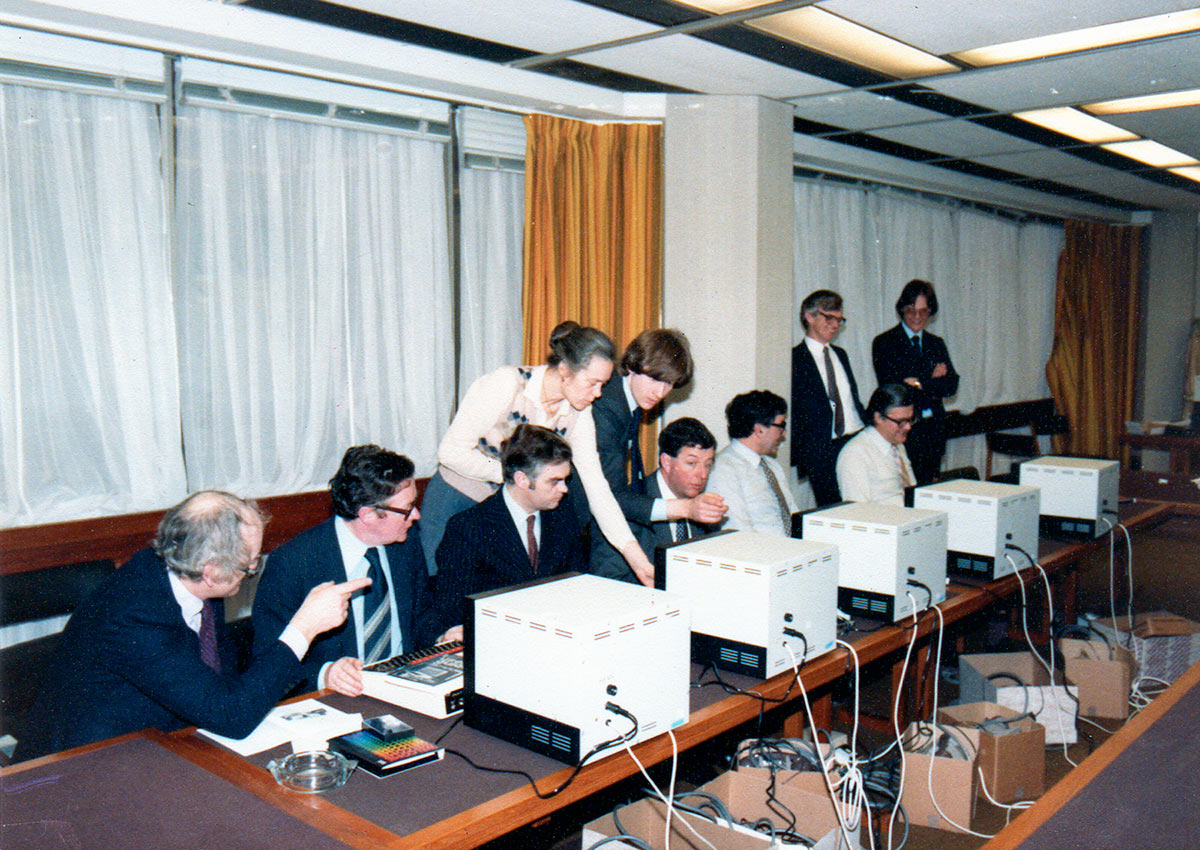
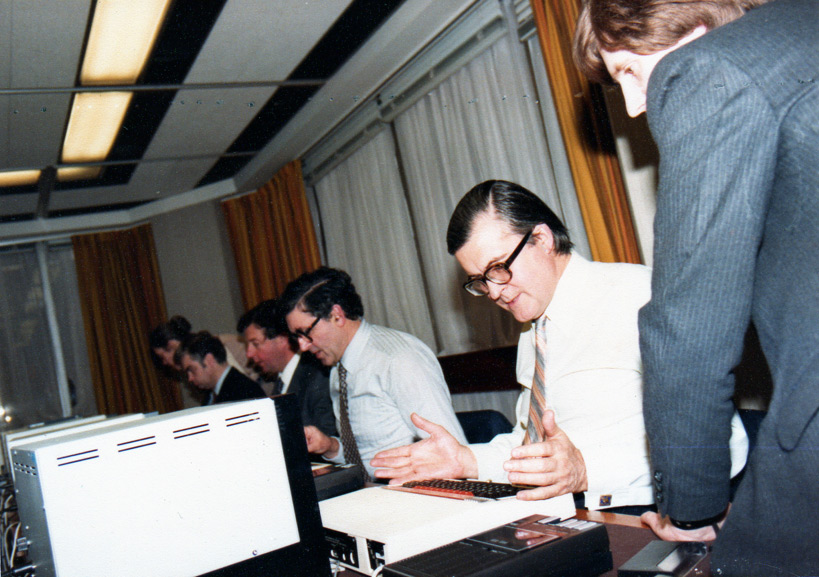
The Computer Literacy Project Phase 1: 1982 -1983
The 4 initial television series were accompanied by books, linked courses, software, advice services and the BBC Microcomputer system.
The emphasis of the television series was to mix ‘how to’ demonstrations with examples of computers being used in real life and also in research. In those days television could be more didactic and BBC Education series nearly always had accompanying books and course material.
-
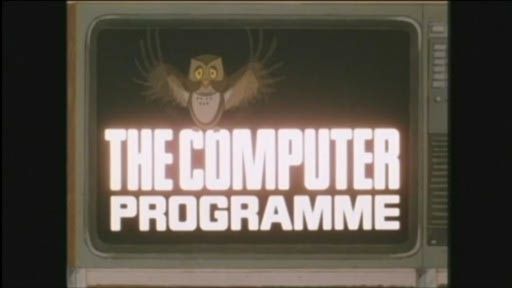
The Computer Programme
(10 programmes) -
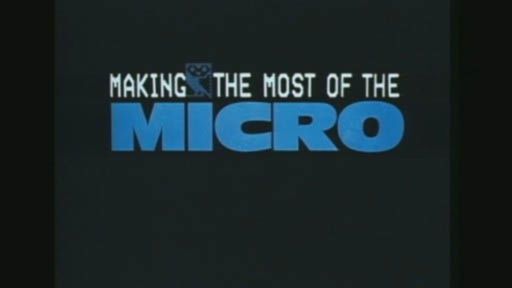
Making the Most of the Micro
(10 programmes) -
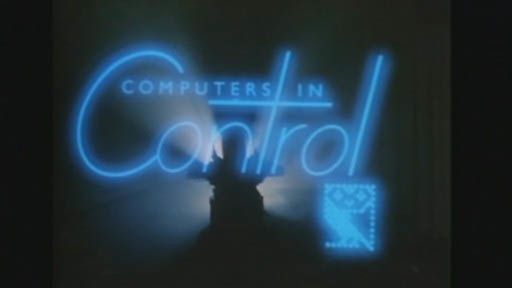
Computers in Control
(5 programmes) -
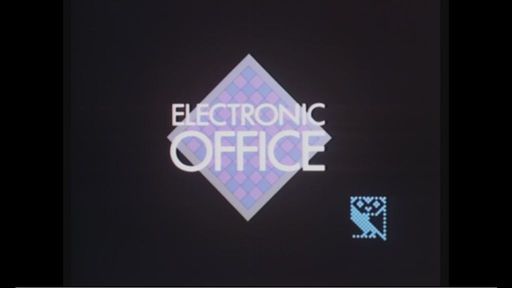
The Electronic Office
(6 programmes)
What was new here – and controversial - was the associated hardware and software. The BBC Micro was used extensively on-screen for demonstrations. Much of the specially written software for these can be run in this archive.
-
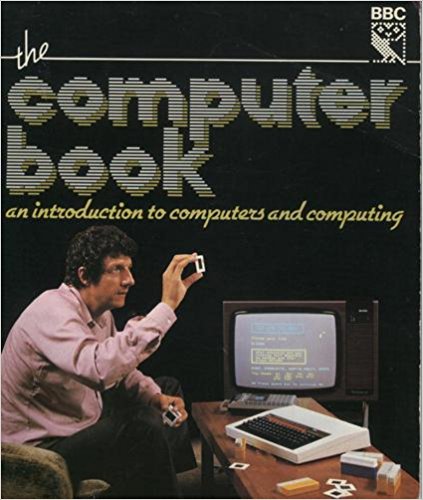
The Computer Book became the No 1 best seller for non-fiction in 1982/3
View on Amazon -
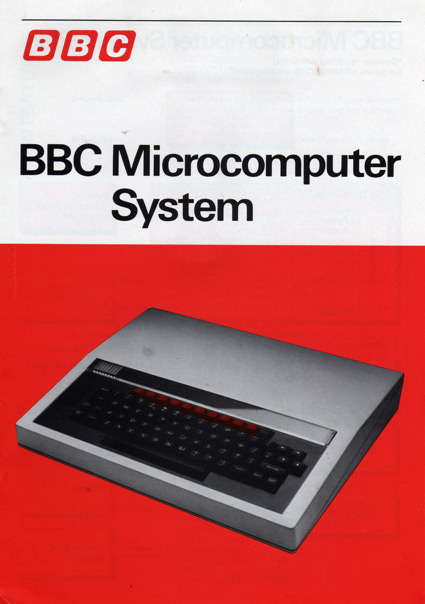
The Microcomputer System book - specification
Download .pdf -
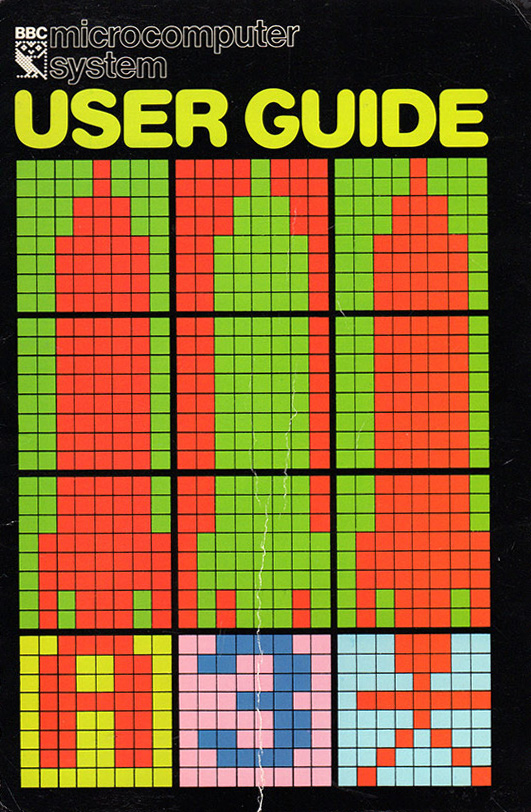
The BBC Basic User Guide
Download .pdf -

Software, including Telesoftware.
The Welcome Tape came with the machine, other software was produced by BBC Enterprises, Acornsoft. Consumers Association, etc.
30 Hour Basic
The 30 Hour Basic course produced in partnership with the National Extension College. Over 150,000 people signed up and the NEC reported a vey low drop out rate, making it one of the most successful of their distance learning courses.
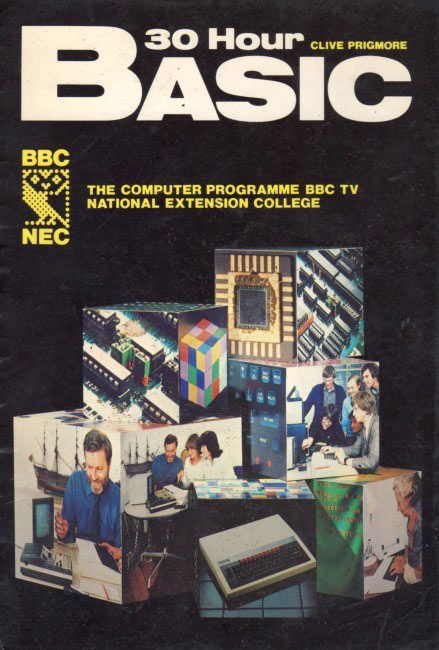
View on Amazon
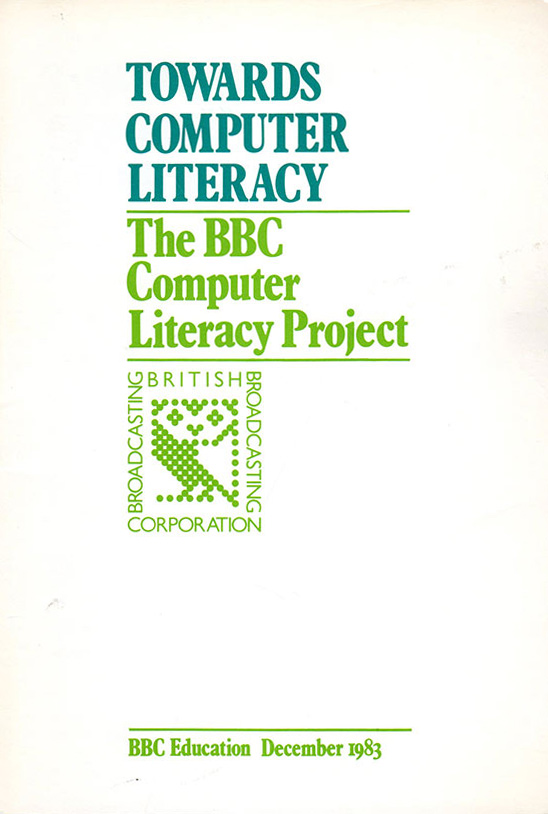
Download .pdf
Results by 1983
- Audiences per programme were up to 2 million with a reach of 18%
- The Computer book sold 80,000 copies
- Over 2 million BBC Micros were sold (including worldwide sales)
- The 30 Hr Basic course was taken by 160,000 with a 2.6% drop out
- Broadcasting Support Services (an advice and referral service run by the BBC to provide information by post and telephone) attracted over 300,000 enquiries by mid 1983
- Every college of FE recorded the series
- The TV series were the most heavily used series in schools
- Over 85% of primary and 65% of secondary schools opted for BBC Micros in the government’s computers in schools project
- The series were transmitted by a number of overseas TV companies – including PBS in America and the Australian Broadcasting Commission
- The money the BBC made from sales of the hardware partly went into programmes but also funded the 1985 Domesday Project, a nationwide interactive database of photographs, maps, reminscences and news, capturing life in a single year
- In 1984 the BBC published a booklet Towards Computer Literacy, which explained the way the project up to then had been planned, its expectations and outcomes
- The Project won the Royal Television Society’s Judges Award in 1983 - 1984
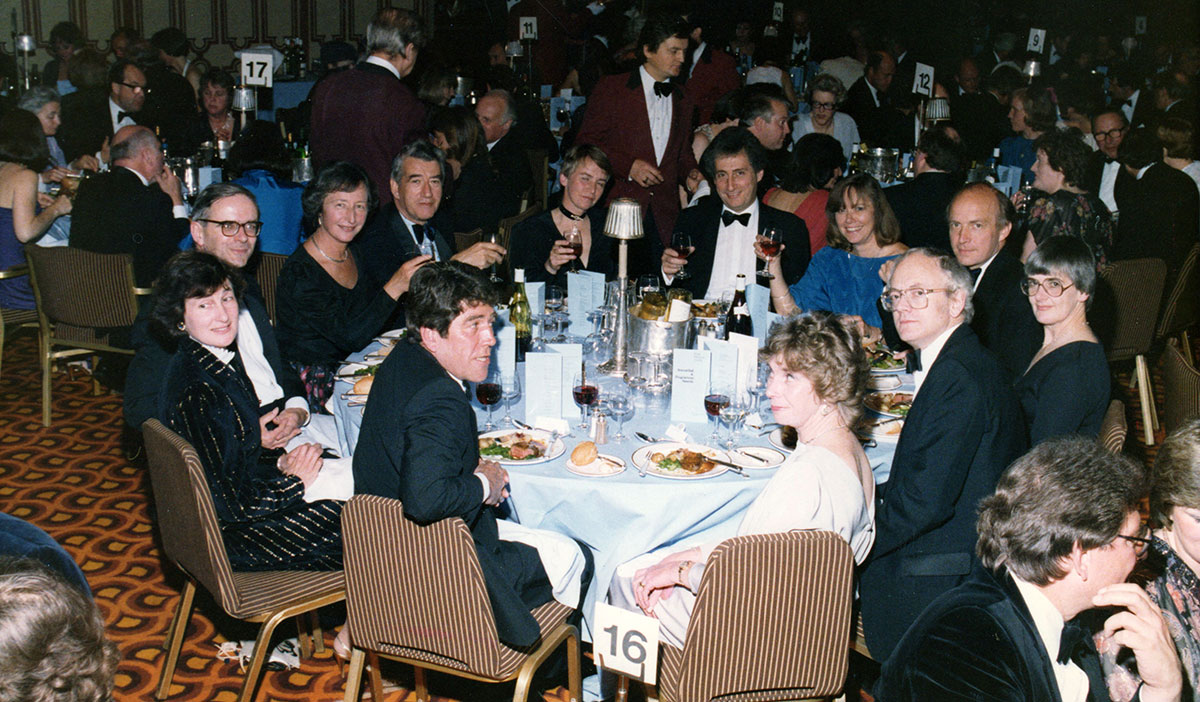
Foreground L - Roberts Salkeld (BBC Education Officer); foreground R - John Radcliffe (Exec Producer). Centre L-R - David Kitson (BBC Engineering), Sheila Innes (Head of Continuing Education Department), Donald Grattan (Controller, Educational Broadcasting), David Allan (Project Editor and series producer), John Harrison (BBC Enterprises);
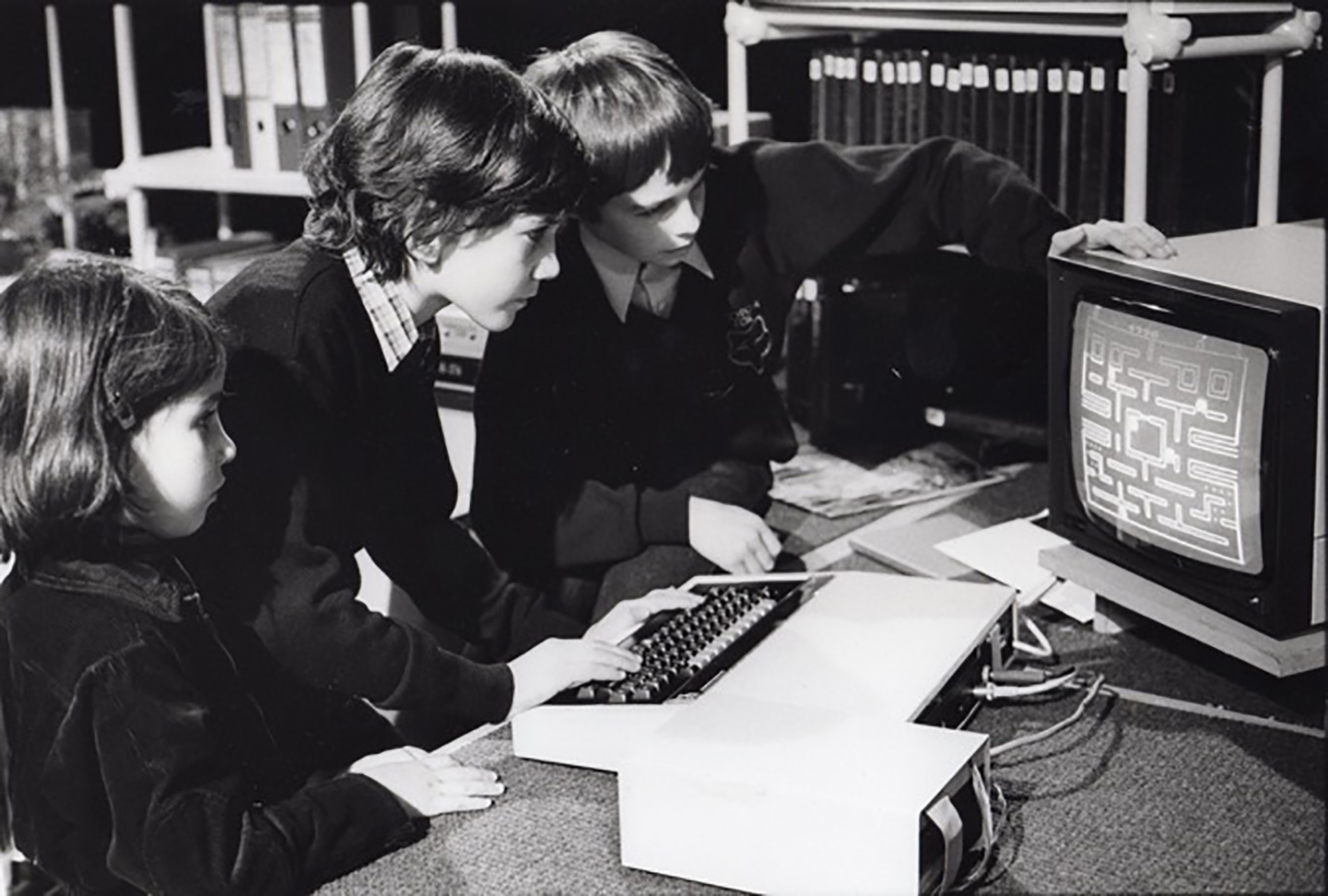
The Computer Literacy Project Phase 2 - 1983-1989
The extraordinary response prompted a live 2 hour special feedback programme on BBC1 in October 1983 called Making the Most of the Micro – Live. Later a second similar programme was transmitted in June 1984. Following that MicroLive became a regular magazine programme between October 1984 and 1987.
Other series included With a little Help from the Chip (disability and computing), the iconoclastic The Learning Machine, Micro File, Electric Avenue and Micro Mindstretchers (from Schools Television).
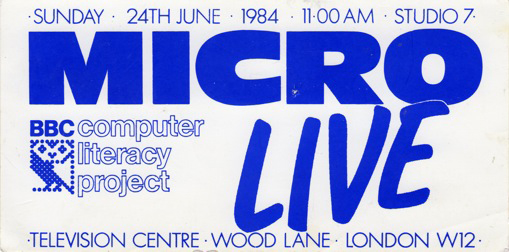
Micro Live won the Times Technology Programme of the Year award in 1985 and 1986.
The BBC Micro and its successors, manufactured under license by Acorn Computers of Cambridge continued to sell well in the high street and became one of the machines offered free by the Government in its Computers in Schools project. The BBC and many other organisations such as the Consumers Association created software using the BBC’s Guidelines for Software Writers. Government funding supported the Microelectronics in Schools Project and the Scottish Microelectronics Project and led to a wave of educational software writing, much of it by teachers themselves.
The Computer Literacy Project Legacy
- It is claimed that The Project helped inspire a generation of coders
- BBC micros are still in use in classrooms and laboratories
- The work on telesoftware gave the BBC a flying start in its work on set top box design
- The Acorn team went on to develop the RISC chips which now populate mobile phones
- The Trojan Mouse told the story in a ten year retrospective of 1992.
- An extensive report on the project by Tilly Blyth of the Science Museum was published by the Nesta Foundation
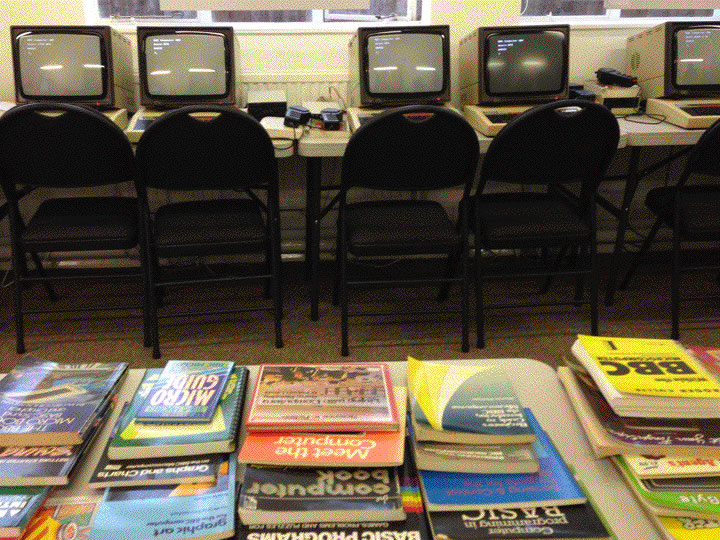
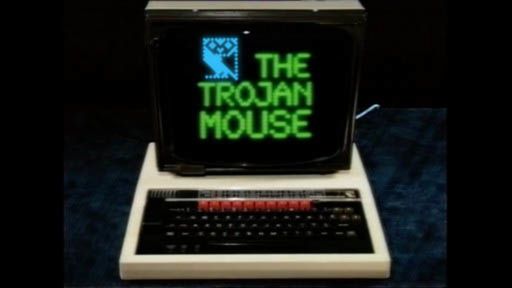
Timelines
See how the BBC project fitted in with the wider history of computing. The BBC Micro is almost central in the BBC’s own technology timeline as displayed in the foyer of Broadcasting House in 2015

Postscript - The Project Remembered
Moments
The BBC’s first official historian Professor Asa Briggs has the concept of ‘moments’ -when critical initiatives perfectly coincide with social or technological change. One such pivotal ‘moment’ was when the BBC was founded in 1922. Crystal sets operated by lone enthusiasts rapidly gave way to family listening on newly available domestic radio sets. Broadcasting went mainstream.
Asa Briggs privately remarked that there was a similar ‘moment’ in the early 1980s when computers came out of the hands of the few and into the home, school and high street and the BBC responded with its Computer Literacy project.
As Sheila Innes comments: “We had our moment”
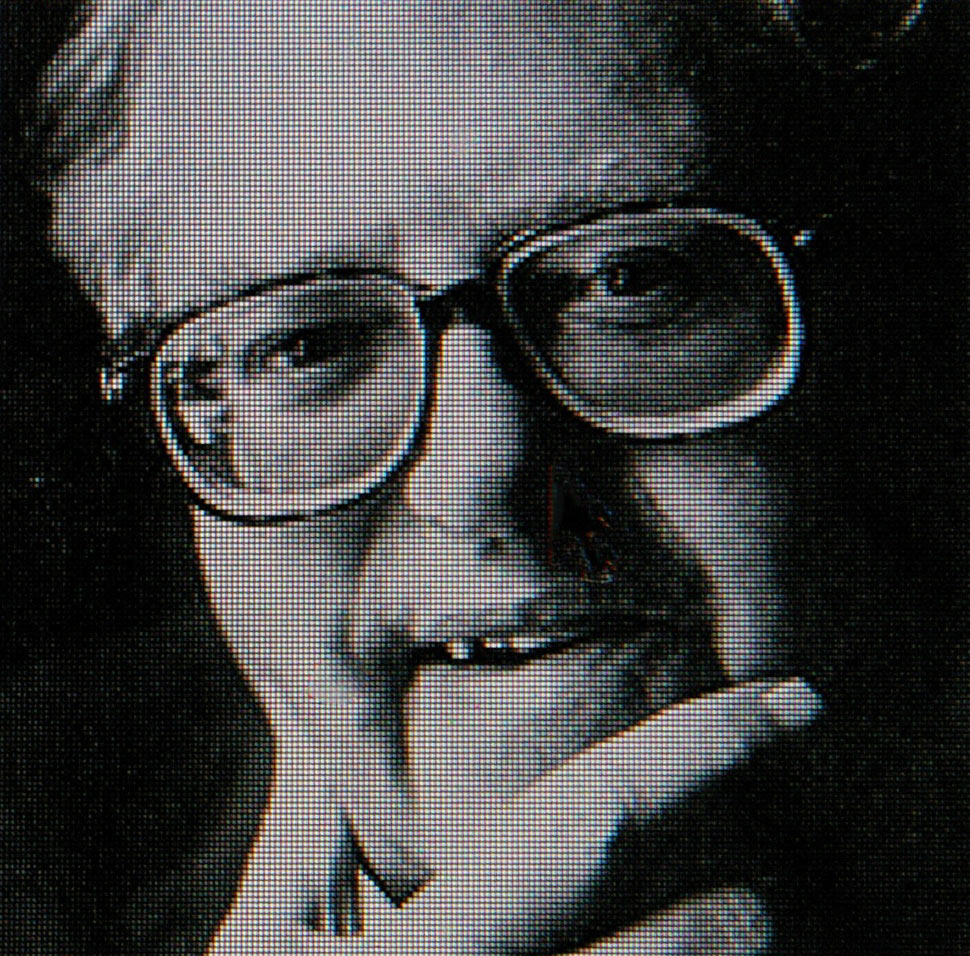
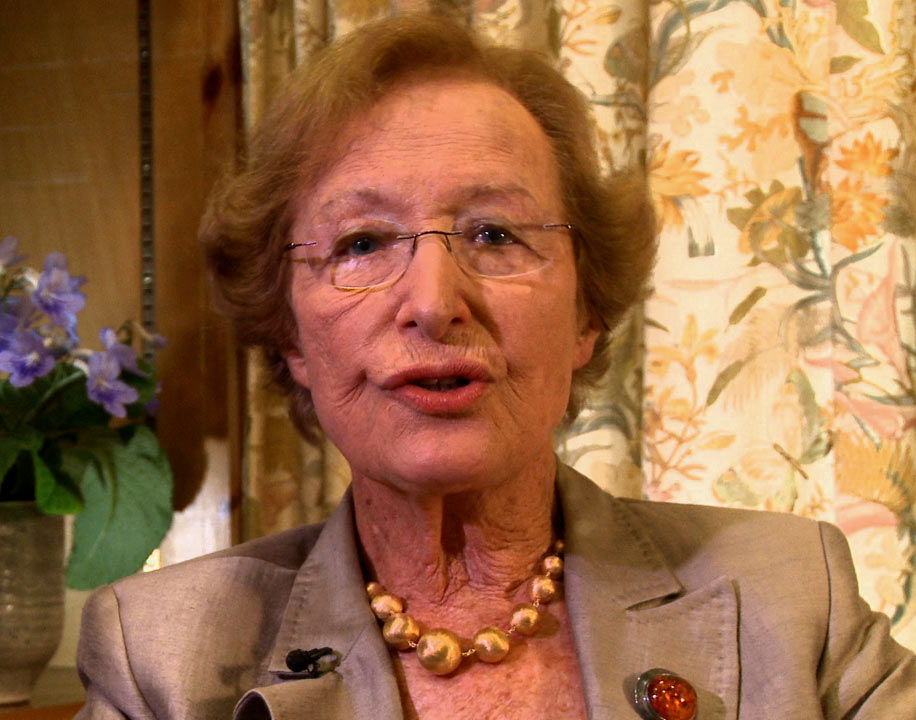
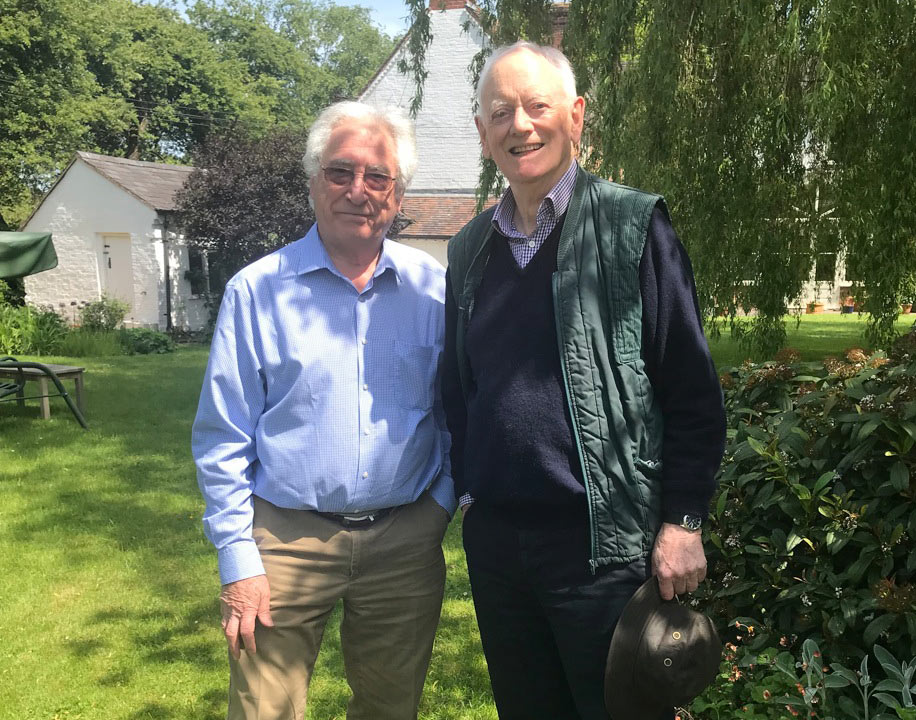
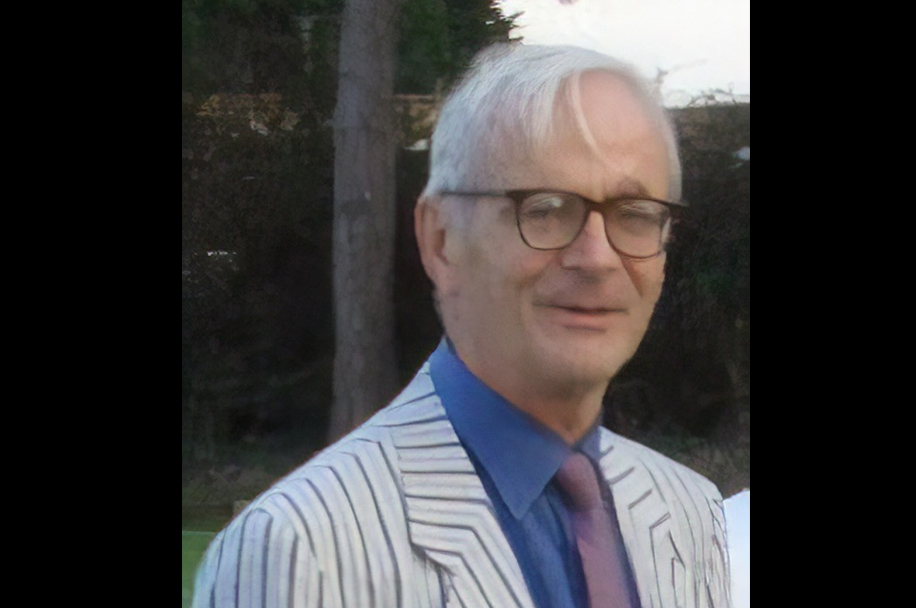
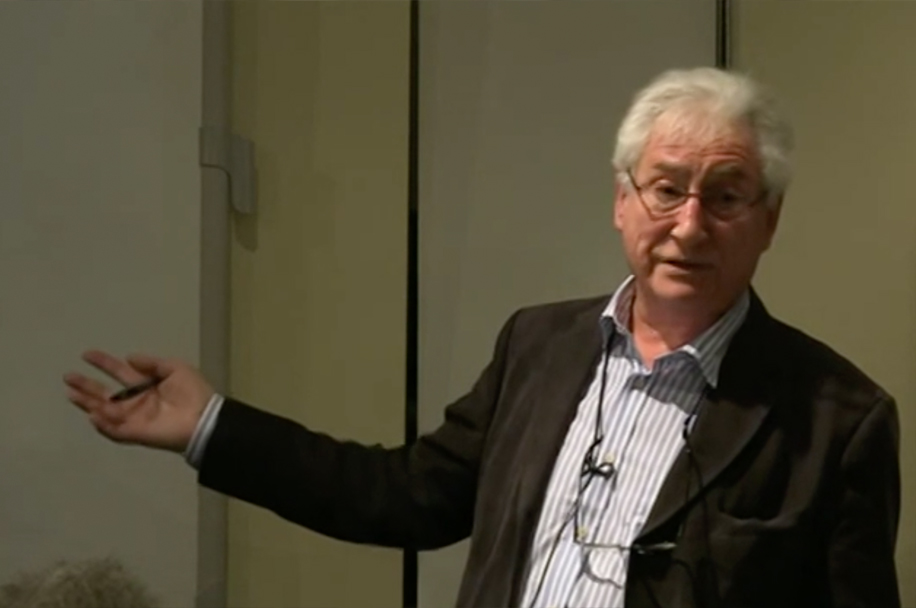
View original requirements spec for the BBC Micro on bbcbasic.co.uk
About this Archive
This archive project was conceived and produced by David Allen and Steve Lowry. It contains all the 146 core programmes of the original project (from 1979-1992) as well as later, related programmes. It also includes 166 associated BBC Micro software programs that can be run on some platforms on an emulator (written by Matt Godbolt). The software programs were written in the 1980s for the TV series by Ian Trackman and Steve Lowry.
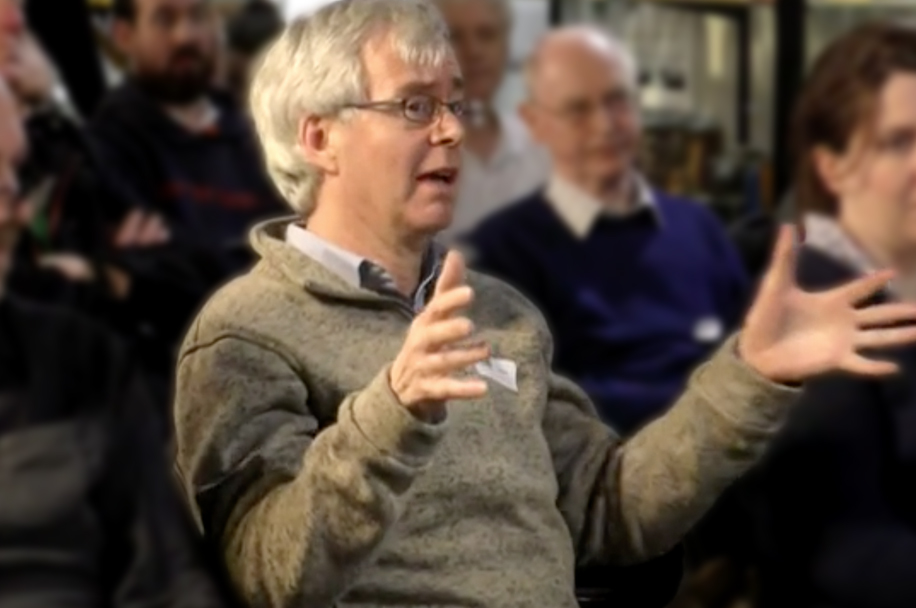
Watch Steve's original archive in action.
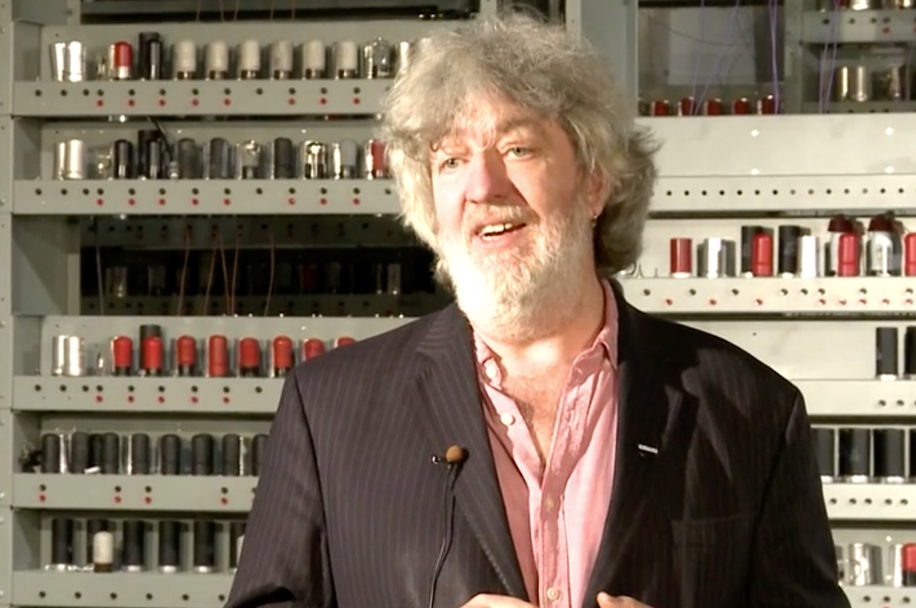
Steve Lowry started building and curating the Computer Literacy Project Archive in 2015. Since then, he has not only defined but also provided text for thousands of clips, as well as creating a system of navigable themes. He continues to develop the archive which is the source of the data used on this website.
This website was built by Andy Armstrong and Sam Urquhart. The CLP Archive is project-managed by Jake Berger of BBC Archive Development.
Acknowledgements
The project has depended on the internal BBC support of Alex Mansfield, Jessica Cecil and Bill Thompson. Retired BBC staff from the original 1980's production team and BBC Engineering who agreed to help gather information for this website include Terry Marsh, David Thomas, Patrick Titley, David Harrison, Kristin Mason, George Auckland, Anna Jackson, Robin Mudge, Richard Russell, David Kitson, John Radcliffe and Sheila Innes.
Special thanks are due to Brandon Butterworth and Michael Satterthwaite of BBC R&D, to Alistair Quarterman and to Hermann Hauser and the Hauser-Raspe Foundation for critical early support.
Encouragement from potential users has come from Tilly Blyth, Chief Curator at the Science Museum, Professor Michael Campbell-Kelly, and Andrew Herbert at the National Museum of Computing at Bletchley Park, Jason Fitzpatrick at The Centre for Computing History and officers of the British Computer Society.